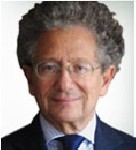 Project Syndicate
Project Syndicate - Can Kosovo achieve independence without the tacit consent of Russia, and can there be a humanitarian and political solution to the tragedy in Darfur without the active goodwill of China? The two crises have nothing in common, but their resolution will depend in large part on whether these two permanent members of the United Nations Security Council use their veto power.
Comparing the respective abilities of Russia and China to block key international initiatives makes no sense in itself, but it does constitute a useful tool for understanding the transformation of the international system that is now taking place as a direct consequence of the relative decline of America’s global power. From that standpoint, the deepening of chaos in the Middle East poses both opportunities and risks for Russia and China, which may force them to define the roles they want to play and the images they want to project in the world.
The key question is this: Is Russia taking giant steps in the “wrong direction” while China is taking “minuscule” steps in the “right direction”?
Superficially, Russia and China may give the impression that they are pursuing the same path when they both proclaim with pride that they are “back” on the world stage. But this boast means different things for each country.
For China, a deeply self-confident country, to be “back” simply means regaining the country’s historical centrality in the world after an absence of more than two centuries. After all, at the end of the eighteenth century, China became the world’s first producer of manufactured goods, and it perceives itself as a center of civilization unequalled by any other in Asia, if not the world.
China’s renewed self-confidence is based on its remarkable economic prowess, which is derived not from natural resources, but from productivity and creativity. Whatever the huge political, social, and economic tensions may exist, there is a “feel good” factor in China, a sense of progress, with the 2008 Olympics in Beijing figuring as the symbolic moment that will proclaim to the world the scale of the country’s achievements.
Above all, with the exception of the Taiwan issue, China is a satisfied status quo power when it comes to the evolution of the international system – a patient actor that finds it perfectly legitimate to behave and to be seen as the world’s number two power.
By contrast, the Russians remain insecure about their status in the world. Russia’s explosive “revisionist” behavior on the eve of the recent G8 summit is an indication of the Kremlin’s “unsatisfied” nature. Because they know they are less potent, particularly in demographic and economic terms, Russians feel they have to do “more.” For them, to say “Russia is back” means that the humiliating Yeltsin years are over, and that they now must be treated as equals, particularly by the United States.
Russians are nostalgic not for the Cold War as such, but for the international status they lost when it ended. Now that America is no longer a “hyperpower” with no strategic challengers, Russia has reasserted its status as a “superpower,” a claim that is not necessarily supported by reality. Unlike the Chinese, the Russians do not create economic wealth, but merely exploit their energy and mineral resources. Moreover, unlike the Chinese, they have not always been confident of their position in the world. Torn between Europe and Asia in cultural and political terms, victimized by a dark, narcissistic instinct that pervades their reading of their past and their visions of the future, it should surprise no one that Russia is now behaving like a “revisionist” power.
Unsatisfied with their inner identity, it is only natural that Russians should demand changes that make them feel more secure and proud. Less than 20 years ago, the Czech Republic and Poland were part of their sphere of influence, so Russians understandably cannot accept the US unilaterally implanting its security system there.
Of course, in their respective judgments on Russia and China, the West – and Europeans in particular – may be demonstrating selective emotions. “We” tend to be less demanding of China than of Russia, because we tend to see Russia as “European” (at least culturally). As a result, the culture of physical violence and verbal provocation that is gaining ground in Putin’s Russia is deeply disturbing, whereas we tend to judge Chinese misdeeds with a greater sense of distance, if not indifference.
But the differences between Russia and China today may prove to be less significant tomorrow if the deterioration in the Middle East imposes a sense of collective responsibility on all five permanent members of the UN Security Council. It is one thing for Russia and China to exploit America’s growing difficulties from Gaza to Kabul; but it is quite another if the situation deteriorates to the point of general destabilization in the region.
Indeed, the Middle East’s deepening problems may impose a sense of restraint in Russia and China by forcing them to calculate not in terms of their global “nuisance value” vis-à-vis the West, but in terms of their ability to make a positive and stabilizing contribution to the world order.
Dominique Moisi, a founder and Senior Advisor at Ifri (French Institute for International Relations), is currently a Professor at the College of Europe in Natolin, Warsaw.
Copyright: Project Syndicate, 2007.
www.project-syndicate.org
